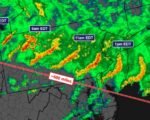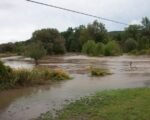Millions of Travelers Expected to Hit the Road
The year-end holiday travel season is coming to an end, but the traffic congestion is not. According to the American Automobile Association (AAA), more than 115 million travelers will travel 50 miles or more from home between December 23 and January 1. This is a 2.2% increase over last year and the second highest since 2000, when AAA began tracking holiday travel.
Most of these travelers will drive to their destinations, as AAA projects nearly 104 million people will hit the road this holiday season. This is an increase of 1.8% compared to 2022 and the second-highest on record, behind only 2019. Gasoline prices are lower than last year, with a current national average of $3.15 per gallon compared to $3.27 in 2022.
Colorado’s Front Range Faces Traffic Challenges
Colorado’s Front Range, which includes the cities of Denver, Boulder, Colorado Springs, and Fort Collins, is one of the most populated and fastest-growing regions in the country. It is also one of the most affected by holiday traffic, as many residents and visitors travel to and from the nearby ski resorts and mountain towns.

According to INRIX, a provider of transportation data, Saturday, December 23, and Thursday, December 28, will be the busiest days on the road in the Front Range. Saturday, December 30, will also see an increase in traffic compared to a normal Saturday, as some people return from holiday getaways while others depart for their New Year’s celebrations.
The best times to hit the road in general are before lunchtime or after 7 pm. However, drivers should still expect delays and congestion on major highways and roads, especially on Interstate 25, Interstate 70, and US Highway 36.
Tips for Travelers to Avoid Stress and Stay Safe
To make the most of their holiday travel, AAA and INRIX offer some tips for travelers to avoid stress and stay safe on the road:
- Plan ahead and check the weather, road conditions, and traffic before leaving. Use online tools and apps, such as AAA’s TripTik Planner, to find the best routes and alternative options.
- Leave early or late to avoid peak travel times. If possible, avoid traveling on the busiest days and hours. Consider traveling on off-peak days, such as Christmas Day or New Year’s Day, when traffic is lighter.
- Pack smart and prepare for emergencies. Bring enough food, water, snacks, and entertainment for the trip. Make sure the vehicle is in good condition and has a full tank of gas. Carry a roadside emergency kit, a flashlight, a phone charger, and a first-aid kit. Have a backup plan in case of breakdowns, accidents, or road closures.
- Be patient and courteous on the road. Follow the speed limit, the traffic rules, and the signs. Keep a safe distance from other vehicles and avoid distractions, such as texting or eating. Respect the law enforcement and the road workers. Be mindful of other drivers and their needs, especially those who are traveling with children, pets, or special needs.
- Enjoy the journey and the destination. Remember that holiday travel is meant to be a fun and memorable experience. Don’t let the traffic ruin your mood or your plans. Focus on the positive aspects of the trip, such as the scenery, the music, or the company. Be flexible and adaptable to unexpected situations. Appreciate the opportunity to travel and explore new places.














